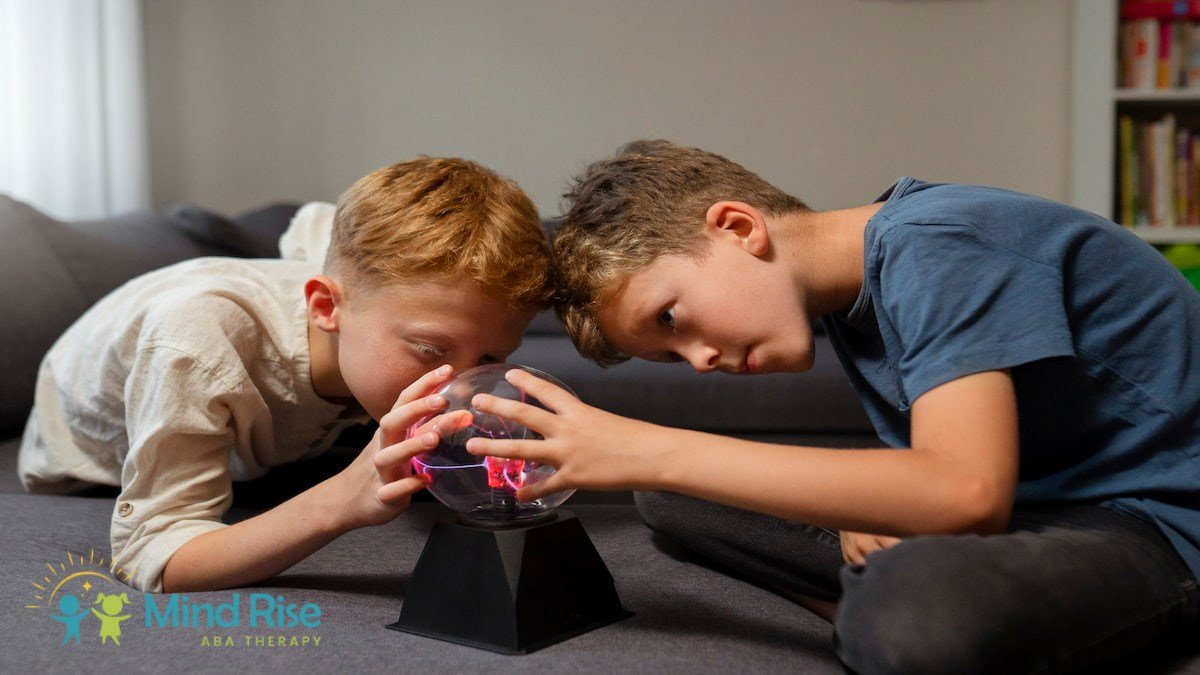Key Points:
- Understanding the autism evaluation process helps reduce stress and improves readiness.
- Gathering detailed developmental history and observations is essential for a thorough assessment.
- Knowing what to expect during the evaluation empowers parents and caregivers.
If you’re preparing for your child’s autism evaluation in Virginia, it’s natural to feel a mix of hope and anxiety. ABA therapy providers in Virginia, like Mind Rise ABA, often see families who have been through this process, and we know how crucial good preparation can be. Understanding what the evaluation entails, what information you’ll need to gather, and how to support your child can make this experience smoother and more productive.
In this article, we’ll walk you through everything you need to know to prepare effectively for your child’s autism evaluation—from what to expect during the appointment to the documentation and questions that can make a difference.
What is an Autism Evaluation and Why Is It Important?
Before diving into preparation, it helps to understand what an autism evaluation is and why it’s so critical. An autism evaluation is a comprehensive assessment conducted by qualified specialists (often psychologists, developmental pediatricians, or speech-language pathologists) to determine whether a child meets the criteria for Autism Spectrum Disorder (ASD).
The evaluation looks at communication skills, social interactions, behavior patterns, and developmental milestones. A clear diagnosis can unlock access to important services like ABA therapy in Virginia and tailored educational supports.
What to Expect During the Autism Evaluation
Knowing what happens during the evaluation can ease anxiety for both you and your child. Typically, the assessment includes multiple components:
- Parent/Caregiver Interview: The evaluator will ask detailed questions about your child’s development, behavior, and any concerns. This is your chance to share observations and give context.
- Direct Child Observation: The specialist will spend time engaging with your child in various activities to assess social responses, communication, play skills, and repetitive behaviors.
- Standardized Testing: Tools like the ADOS-2 (Autism Diagnostic Observation Schedule) or the CARS (Childhood Autism Rating Scale) may be used to guide diagnosis.
- Review of Medical and Developmental History: This includes past evaluations, medical records, and any therapy or educational interventions your child has had.
This multi-faceted approach ensures a full picture of your child’s strengths and challenges.
How to Prepare: A Checklist for Parents
Preparing well can maximize the effectiveness of the evaluation. Here’s a detailed checklist to guide you:
- Gather Developmental Records
Collect any medical records, previous evaluations, speech therapy reports, or educational assessments. These documents give valuable background and context. - Track Behavior and Developmental Concerns
Keep a journal or notes about your child’s behavior, communication, and social interactions over several weeks leading up to the evaluation. Note any repetitive behaviors, sensory sensitivities, or unique strengths. - List Your Concerns and Questions
Prepare a list of questions or topics you want to discuss with the evaluator. This could include questions about diagnosis, next steps, therapy options, or what behaviors to monitor. - Prepare Your Child for the Visit
Talk to your child about what will happen using simple language. Consider bringing comfort items or favorite toys to make the environment less intimidating. - Be Ready to Describe Your Child’s Daily Routine
Evaluators often ask about typical daily activities, sleep patterns, eating habits, and social situations. Being specific helps paint a clearer picture. - Plan Logistics
Confirm the location and timing of the evaluation. Arrive early to reduce stress, and consider bringing a second adult for support and note-taking.
Common Questions Parents Have Before an Autism Evaluation

Many parents face similar uncertainties as the evaluation day approaches. Here are some commonly asked questions:
- How long does an autism evaluation take?
Evaluations can range from a few hours to multiple sessions over several days, depending on your child’s age and needs. - Will my child be diagnosed immediately?
Sometimes a diagnosis is given at the end of the evaluation, but often it requires review and follow-up to ensure accuracy. - What if my child is nonverbal or very young?
Evaluators use specialized tools tailored to all ages and communication levels. They rely on observation and parent input to guide the process. - Can I bring my child’s teacher or therapist to the evaluation?
While parents and caregivers are the primary sources of information, sharing reports from teachers or therapists beforehand can be helpful.
Tips to Make the Evaluation Day Easier
Preparing the day itself with your child’s comfort in mind can reduce anxiety for everyone. Here are practical tips:
- Bring snacks and water in case of delays.
- Dress your child in comfortable clothing.
- Bring a comfort item like a favorite toy or blanket.
- Practice calming techniques if your child uses them (deep breathing, fidget tools).
- Be honest with the evaluator if your child is having an “off” day or is anxious.
What Happens After the Evaluation?
After the evaluation, you’ll typically receive a report detailing findings and recommendations. This may include a diagnosis, therapy referrals, or suggestions for educational support.
If your child is diagnosed with autism, ABA therapy in Virginia is often recommended as an evidence-based approach to build communication, social, and daily living skills. Providers like Mind Rise ABA offer personalized therapy plans to support your child’s development and your family’s needs.
Why Preparation Matters for Your Child’s Autism Evaluation

Being prepared helps you advocate effectively for your child. The more detailed and accurate information you provide, the better the evaluator can understand your child’s unique profile. This leads to a more accurate diagnosis and a more targeted intervention plan.
Also, preparation helps reduce your stress on evaluation day, allowing you to focus on supporting your child through the process.
Summary
Preparing for your child’s autism evaluation in Virginia involves gathering medical and developmental history, observing and noting your child’s behaviors, and knowing what to expect during the assessment. It helps to create a comfortable environment for your child on the day and to prepare questions for the evaluator. Understanding the process can empower you to get the most accurate diagnosis and connect your child to the right supports, including ABA therapy.
When your child’s evaluation points toward autism, starting effective therapy early can make a big difference. At Mind Rise ABA, we specialize in ABA therapy in Virginia, working closely with families to build skills and confidence for both children and caregivers. If your child is approaching or has completed their evaluation, we’re here to help with personalized, compassionate therapy services tailored to your family’s journey.
Contact us today to learn more about ABA therapy in Virginia and how we can support your child’s growth and development.


